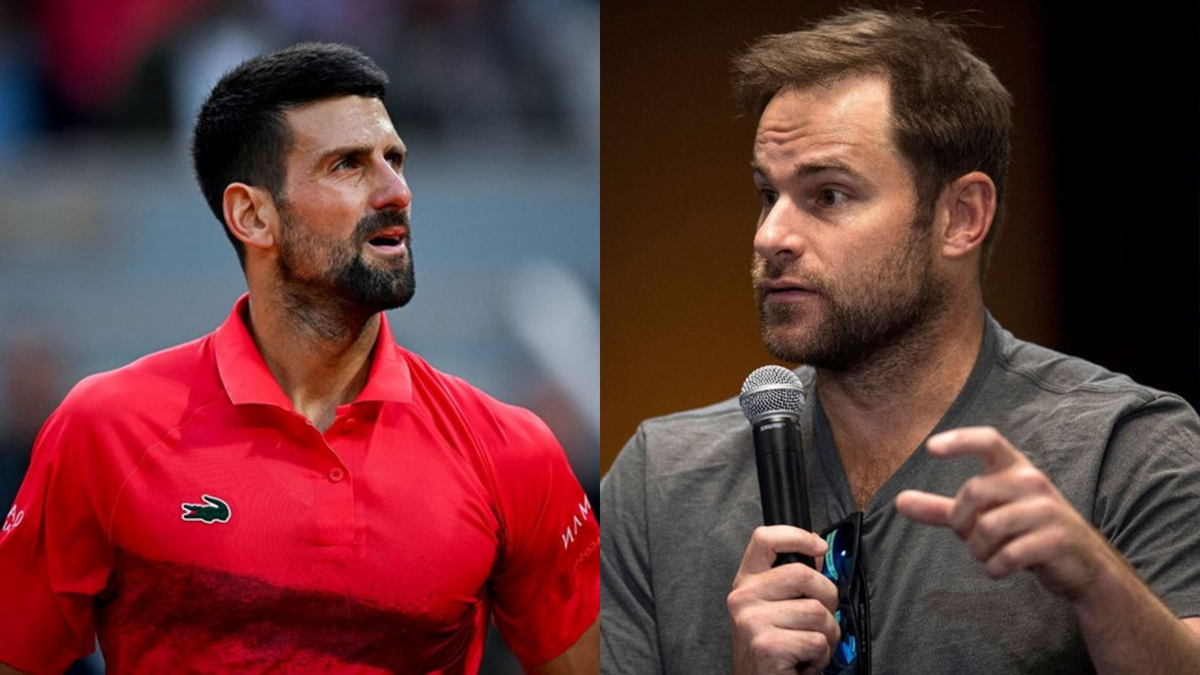
Imago
Image Credits: Imago

Imago
Image Credits: Imago
Novak Djokovic-led Professional Tennis Players Association (PTPA) has long been in a tussle with the ATP, WTA, and the Grand Slams over a lawsuit alleging that the governing bodies fail to compensate athletes fairly. Added to that are concerns about the increasingly demanding tournament schedule. The 24-time Grand Slam champion has repeatedly voiced his frustration, urging the tours to address player-related issues — and he reiterated those sentiments once again this month in Riyadh. However, not everyone agrees with the Serbian’s stance, including a former ATP icon.
Watch What’s Trending Now!
During the Six Kings Slam exhibition, Djokovic took part in the Joy Forum, where he spoke candidly about the state of tennis. He highlighted concerns over pay disparity and explained how the PTPA has, in recent years, attempted to challenge what he calls the “monopoly” of the tours, which exclude players from decision-making processes. Yet, former American player Andy Roddick sees things differently. In fact, he questioned Djokovic’s use of the term “monopoly” and sought clarity on what the 24-time major winner meant by it.
During an episode of his Served podcast on October 21, Roddick asked, “Is it the monopoly of the Tour or the Slams or all the above? You say system, but specifically which system? You say monopoly, but specifically which monopoly?” The 2003 US Open champion continued, “Just frankly speaking, I think Novak is extremely well-intentioned, and the players in the locker room have grown to really love and adore this guy as a leader in the sport. But also if he wants to come out and say some things, let’s say it. This thing has been around for a long time now. Let’s just come out and say it.”
ADVERTISEMENT

ADVERTISEMENT
Roddick further argued that the PTPA’s impact has been limited so far, suggesting it lacks the structure of a true union. “I think there needs to be a union, but I just think that the players need to decide who that is for them. I don’t think you can start a union and then say we represent you — I don’t think that’s how it works, and it hasn’t worked for the PTPA.”
Concluding his thoughts on Djokovic’s comments, he added, “We’re talking about buzzwords like monopoly, injustices. We just want the best. Like, what does that mean, right? We all want that. But at some point, there needs to be a very specific plan.”
ADVERTISEMENT
Speaking of plans — Djokovic did have one, years ago, particularly addressing the issue of the grueling tennis schedule. He recently reflected on those efforts while offering a candid take on the ongoing debate surrounding the tour calendar.
Novak Djokovic’s efforts to fix players’ scheduling woes
For those unaware, Novak Djokovic served as president of the ATP Players’ Council more than a decade ago. He held the role for four years before founding the PTPA to strengthen players’ voices on key issues — especially regarding the exhausting schedule. Reflecting on his time as council president, he revealed, “I was personally against the extension of the days of duration of the Masters 1000 events, right? I felt from the very beginning I was against it.”
ADVERTISEMENT
He has consistently advocated meaningful reform of the tennis calendar. “More than 15 years ago, I was talking about us needing to come together and reorganize the schedule in the calendar,” he said recently. According to Djokovic, real change will only happen when players unite behind a common cause.
As he explained, “You need the top players, particularly, to sit down, roll up their sleeves, and really care a bit more about participating and understanding all the whole topics.”
Top Stories
How Much Did Aryna Sabalenka’s Australian Open Jewelry Cost? Designer and Materials Explained

Is Elena Rybakina Dating? All You Need To Know About WTA Star’s Boyfriend

Who Are Elena Rybakina’s Parents & Siblings? Everything to Know About WTA Star’s Family

What Is Elena Rybakina’s Ethnicity, Religion, and Nationality? Exploring Her Family Roots and Background

What Is Elena Rybakina’s Net Worth in 2026? Career Earnings, Endorsement Deals and More

He further emphasized that without unity, progress will remain elusive. “Nothing is gonna change, you know? I know it from my personal experience, trust me, so yeah, it’s quite a complex topic.”
ADVERTISEMENT
Do you agree with the Serbian’s perspective, or do you see it differently? Let us know your thoughts in the comments below.
ADVERTISEMENT
ADVERTISEMENT
ADVERTISEMENT
